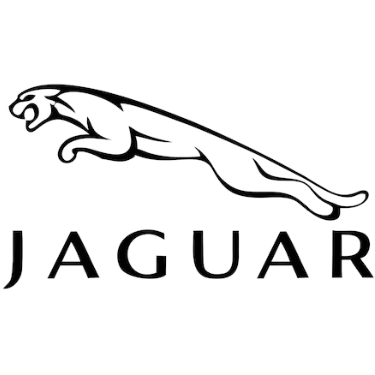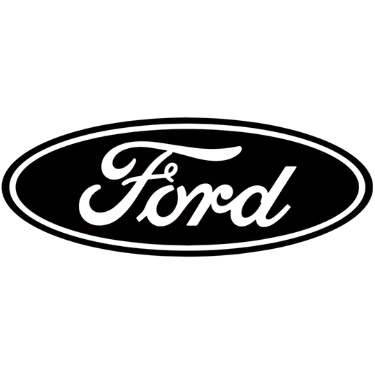Austin may be better known for its traffic and skyline than its shorelines, but head west toward Lake Travis or Lake Austin, and you’ll find a thriving boating community. For those who enjoy weekends on the water, keeping a marine vessel in top shape takes more than just regular maintenance—it means protecting the cabin, helm, and passengers from relentless Texas sun and UV exposure. That’s where marine-grade window film steps in.
At Dixie Tint Pros, we specialize not only in auto tint Austin drivers rely on, but also in high-performance films for boats and marine craft. Whether you own a luxury wake boat, a fishing vessel, or a family cruiser, the right window tint improves comfort, visibility, and longevity of your boat’s interior.
The Texas sun is no joke. UV exposure on the water is more intense due to sunlight reflecting off the lake’s surface. Without proper tinting, marine glass can:
Much like tinted windows drivers use for sun protection on the road, marine window tint helps reduce temperature buildup inside the boat while filtering harmful rays, without affecting visibility.
When you’re piloting a boat into direct sunlight, glare off the bow and windscreen can make visibility a challenge, especially if you’re navigating at speed. Glare isn't just annoying; it can reduce reaction time and increase the chance of accidents.
Our ceramic window tint solutions are ideal for boaters because they offer high UV rejection with little to no reflectivity. That means you keep a clear view of what’s ahead without dealing with mirrored or overly dark finishes. Whether you’re headed toward Lakeway or exploring the coves near Dripping Springs, reducing glare on the water gives you better control and a safer experience.
Just like a luxury vehicle’s interior can fade and crack under unfiltered sunlight, marine upholstery and dashboards are vulnerable to long-term exposure. Marine-grade window tint blocks up to 99% of UV rays, helping to:
This kind of damage adds up quickly, especially when boats are stored in slips or dry docks with little shade. Regular detailing can clean the surface, but window film is what prevents the damage from happening in the first place.
Whether you’re anchored in a popular cove or cruising through a busy marina, privacy matters—especially for those with high-end or cabin-equipped boats. Window privacy film allows you to enjoy the view without offering one in return.
Marine-grade tint can create dark windows from the outside while still allowing natural light in. This is ideal for luxury boats or charters where comfort and discretion are part of the onboard experience.
Boats with enclosed cabins or sleeping areas face serious heat gain without proper window film. Even on milder days, the sun can turn a cabin into an oven. Quality window tint blocks solar heat, reducing the need for air conditioning or fans.
This is particularly important on boats with limited ventilation or when guests or pets are aboard. Marine tinting provides an easy, passive way to keep cabins cooler, even while docked.
Yes—and not all window tint is made the same. Marine glass often has different curvature, thickness, and exposure to moisture compared to automotive or home glass. At Dixie Tint Pros, we use specially engineered window film that:
The same high standards we apply to automobile tinting near me are used when working with boats, just with marine-grade products and installation techniques.
While Texas tint law regulates automotive glass, boats fall under a separate category. That said, we still recommend maintaining proper visibility levels for safety on the water, especially near docks, ramps, and marinas.
With ceramic window tint, you can get maximum UV and heat rejection without going overly dark. It's legal, functional, and keeps your view sharp at every angle.
If you're searching for Austin, Lakeway, or Dripping Springs, you don’t have to settle for a one-size-fits-all approach. Dixie Tint Pros works with both auto and marine tints, bringing years of tinting experience to every job, whether it rolls or floats.
We’ll match your boat’s existing aesthetic, explain your performance options, and install film that holds up in Texas heat and lake life alike. Whether your priority is temperature control, privacy, UV protection, or style, we’ve got the solution that’s right for your vessel.
We provide ceramic and dyed window tints to all of our customers and are an exclusive distributor of Autobahn window films. All of our tints are multilayered and provide protection against scratches, heat, and UV rays
The darkness of window film is regulated based on the Visible Light Transmission or VLT – the percentage of visible light allowed in through the combination of the film and the window. Texas laws contain specific regulations based on the type of vehicle. The requirements for sedans, SUVs and vans are as follows.
- Windshield: 25% VLT tint is allowed above the manufacturer’s AS-1 line or top 5 inches, with less than 25% reflection
- Front Side Windows: Must allow more than 25% of light in
- Back Side Windows: Any level of darkness
- Rear Windows: Any darkness can be used with side outside mirrors, 25% VLT without.
For more information visit the Texas Department of Public Safety’s website here.
The cost of window tinting can vary depending on the size of your vehicle, the windows you want to tint, and the type of film you choose. Generally, the larger the vehicle and the higher the window counts, the more it will cost. Premium Window Films, like our Nanoflex Premium Ceramic window film, start around $125 per window while our quality cost effective Carbon Terraflex Window Films can be as low as $59 per window. Despite our business being window tints, Dixie Tint Pros is completely transparent when it comes to pricing. You will know your out-the-door cost before you arrive at one of our stores, if you request a quote from us.
The short answer is no, it is not illegal to have window tint on your car’s windows. However, Texas regulates the amount of light that your tint can block. Your vehicle tint must follow Visible Light Transmission or VLT standards established by the state of Texas. For more information about Texas Window Tint Laws, visit the Texas Department of Public Safety’s website here.
Carbon tints are made from sheets of polyester or another laminate materials that include microscopic Carbon particles that, depending on quantity, can provide varying shades from very light to very dark. Ceramic window tint is the highest quality window film on the market and is made from polyester or laminate based sheets. They are available in a variety of shades and colors. The main difference between ceramic tint and carbon tint is that ceramic tint is coated with ceramic particles at the end of the manufacturing process. Ceramic tints blocks visible sunlight, adds privacy, blocks harmful UV rays, glare, and heat.



















